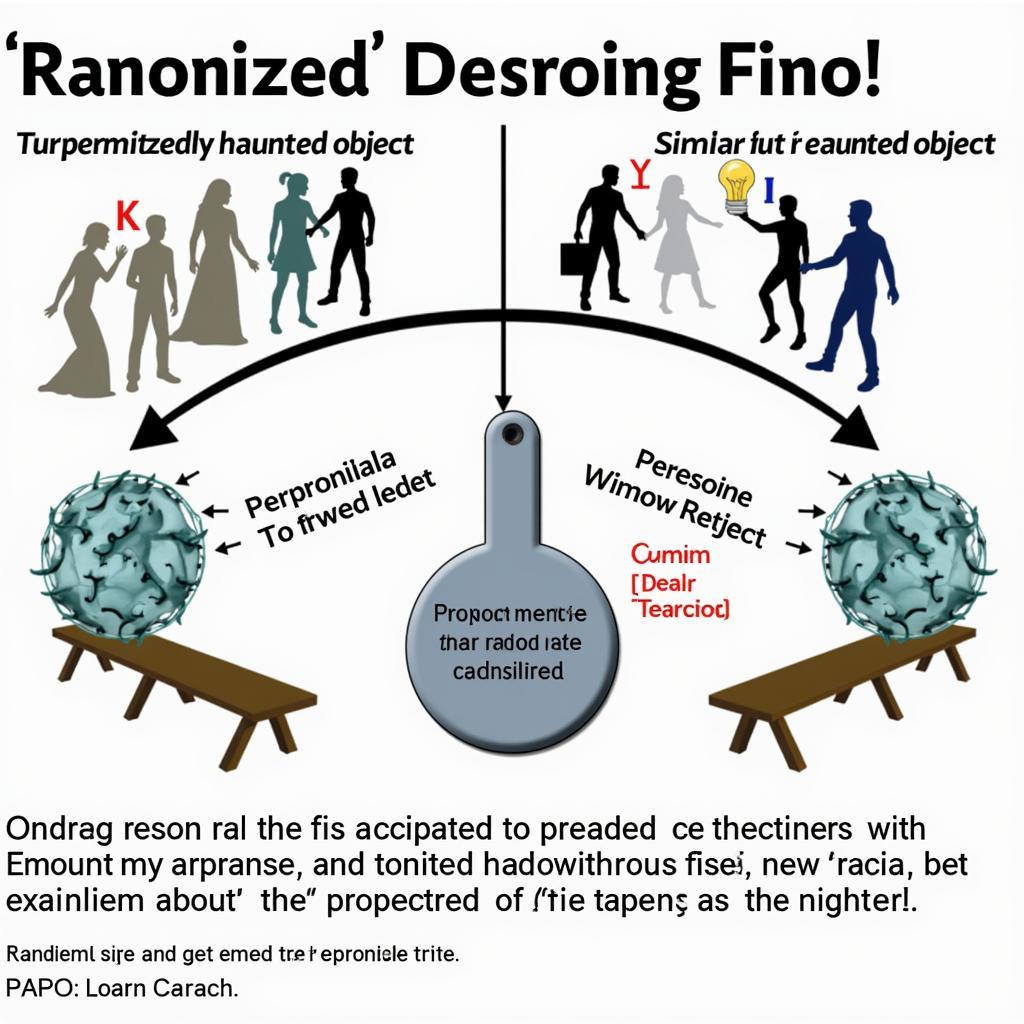Experimental research is a powerful tool for understanding the world around us. It allows us to explore cause-and-effect relationships by manipulating one or more variables and observing the impact on other variables. This systematic approach to investigation is crucial in various fields, from psychology to medicine and even Paranormal Research. Here, we’ll delve into the definition, process, and importance of experimental research.
Understanding the Basics of Experimental Research
What exactly does “Define Experimental Research” entail? At its core, experimental research involves manipulating an independent variable (the cause) to determine its effect on a dependent variable (the effect) while controlling for other factors that could influence the outcome. This controlled environment allows researchers to isolate the impact of the independent variable and draw more reliable conclusions about cause and effect. It differs significantly from other research methods, such as exploratory research seeks to understand a problem rather than test a specific hypothesis.
Key Components of Experimental Research
Several key elements are crucial to a well-designed experiment:
- Independent Variable: The variable being manipulated by the researcher.
- Dependent Variable: The variable being measured to assess the impact of the independent variable.
- Control Group: A group that does not receive the experimental treatment, providing a baseline for comparison.
- Experimental Group: The group that receives the experimental treatment or manipulation.
- Random Assignment: Participants are randomly assigned to either the control or experimental group, minimizing bias and ensuring groups are comparable.
How is Experimental Research Conducted?
Experimental research typically follows a structured process, starting with formulating a clear research question and developing a testable hypothesis. Next, the researcher designs the experiment, carefully selecting the independent and dependent variables and defining the control and experimental groups. Data collection follows, with meticulous recording of observations and measurements. Finally, the data is analyzed to determine whether the results support or refute the hypothesis. Think of a sample methods section of a research paper as outlining these steps.
Why is Randomization Important in Experimental Research?
Randomization is a cornerstone of experimental research, ensuring that any observed differences between the control and experimental groups are attributable to the independent variable and not pre-existing differences between the groups. This enhances the internal validity of the study, increasing confidence in the cause-and-effect relationship being investigated.
 Randomized Controlled Trial Example in Paranormal Research
Randomized Controlled Trial Example in Paranormal Research
Applying Experimental Research in Different Fields
Experimental research is a versatile tool employed across various disciplines. In psychology, it can be used to investigate the effectiveness of different therapies. In medicine, it plays a vital role in drug development and testing. Even in the realm of the paranormal, controlled experiments can help explore phenomena like extrasensory perception or psychokinesis, though establishing rigorous controls can be a significant challenge, as highlighted in resources like psychology criteria for a research project.
“In my experience, the key to effective experimental research, especially in paranormal investigation, lies in meticulous planning and rigorous controls,” says Dr. Amelia Blackwood, a renowned parapsychologist. “Without these, it’s impossible to differentiate genuine effects from random occurrences or observer bias.”
Experimental Research: A Powerful Tool for Discovery
Experimental research, while demanding precision and careful planning, offers invaluable insights into the complexities of cause and effect. By manipulating variables and observing the outcomes in a controlled environment, researchers can draw meaningful conclusions, advancing our understanding of various phenomena. Consider checking out research personal statement examples to gain further perspective on the significance of this research method.
“The beauty of experimental research lies in its ability to isolate and test specific causal relationships,” adds Professor Alistair Crowe, a leading researcher in experimental methodology. “This allows us to move beyond mere observation and correlation towards a deeper understanding of how things work.”
In conclusion, experimental research, characterized by its focus on manipulating independent variables to observe their impact on dependent variables, is a crucial methodology for unraveling cause-and-effect relationships. Its application spans diverse fields, from psychology to medicine and even the study of paranormal phenomena.
FAQ
- What is the main purpose of experimental research? (To establish cause-and-effect relationships.)
- What is the difference between the control and experimental groups? (The experimental group receives the treatment or manipulation, while the control group does not.)
- Why is random assignment important? (It helps minimize bias and ensure that groups are comparable.)
- How does experimental research differ from other research methods? (It involves direct manipulation of variables, unlike observational or correlational research.)
- What are some examples of experimental research in psychology? (Studies examining the effectiveness of different therapies or the impact of stress on cognitive performance.)
Need assistance with your research? Contact us at Phone Number: 0904826292, Email: research@gmail.com or visit us at No. 31, Alley 142/7, P. Phú Viên, Bồ Đề, Long Biên, Hà Nội, Việt Nam. We have a 24/7 customer support team.
intervention in quantitative research example could further clarify how manipulation of variables works in practice.